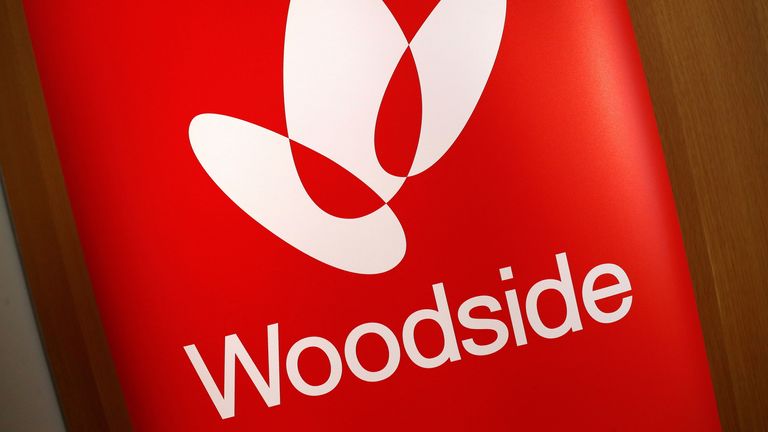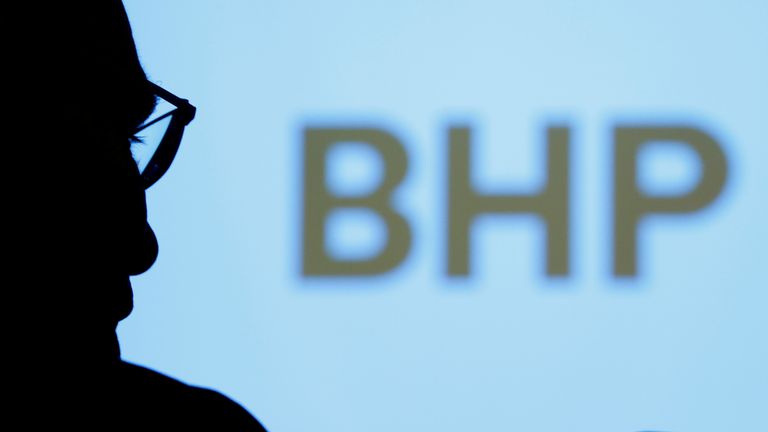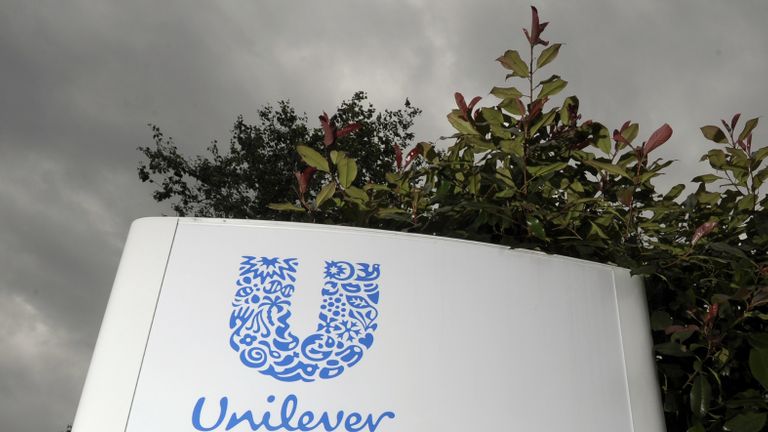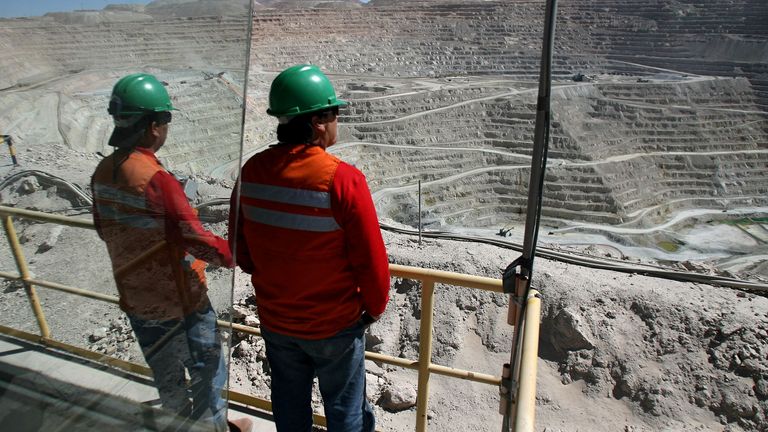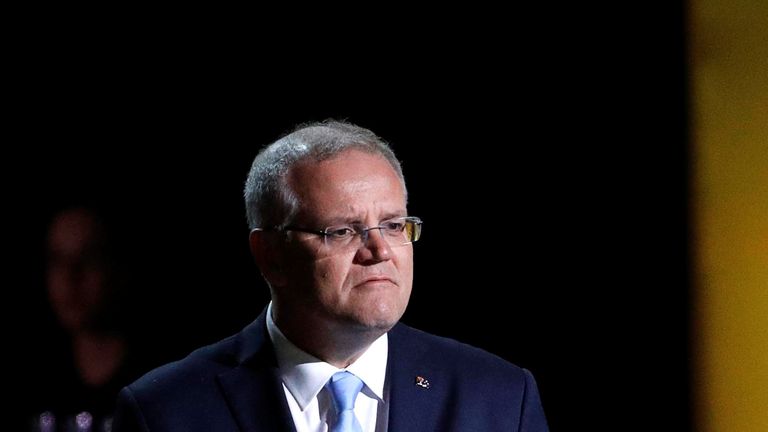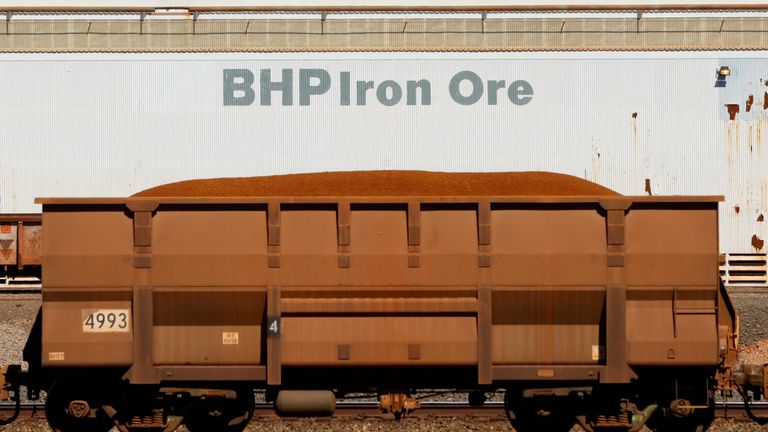Mining giant BHP set to leave FTSE 100 as it picks Sydney for main listing
The second-biggest company in the FTSE 100 has announced a dramatic rejig of its corporate structure set to trigger its exit from the index.
BHP, the world’s biggest mining company, currently has a so-called “dual listing” under which it has two legal entities – BHP Group Ltd, with shares listed in Sydney and BHP plc, which is listed in London.
Today, it announced it would be unifying the two, creating a simplified structure.
Under the proposal, BHP’s primary stock market listing will be in Sydney, while it will retain a standard listing on the London Stock Exchange.
However, under current rules, that means BHP would leave the Footsie.
Many UK investors would have to sell the shares.
News of the move accompanied confirmation that BHP is effectively offloading its $13bn portfolio of petroleum assets to the Australian company Woodside Petroleum.
Together, they amount to the most radical shake-up in the history of this globally important company.
Ken MacKenzie, BHP’s chairman, explained: “Now is the right time to unify BHP’s corporate structure.
“BHP will be simpler and more efficient, with greater flexibility to shape our portfolio for the future.
“Our plans announced today will better enable BHP to pursue opportunities in new and existing markets and create value and returns over generations.”
The reorganisation recalls a similar measure taken by the Anglo-Dutch consumer goods giant Unilever.
It originally announced plans in 2018 to unify its two businesses into a single entity based in Amsterdam – only to back down following furious protests from UK shareholders.
The group subsequently went ahead with a unification but, crucially, this saw the primary listing in London.
It is unlikely that BHP’s decision will anger investors in quite the same way Unilever did when it first announced plans to decamp to Amsterdam.
For a start, BHP is not really an established stalwart of UK business in the way that Unilever is, but is chiefly an Australian business.
The company, founded in 1885 under the name Broken Hill Proprietary, even rejoices in the nickname of “The Big Australian”.
It came to the UK only in 2001, via a merger with the South African miner Billiton, which had itself only floated in London in 1997.
The majority of the old Billiton assets, most of which were in South Africa, were spun off in 2014 and the company adopted the moniker of BHP three years later.
But BHP owns no mining assets in this country and its only meaningful UK presence is its office on Westminster’s Victoria Street.
Its global headquarters, though, have always been in Melbourne.
Moreover, there is logic to BHP’s primary listing being in Australia, with the Sydney-listed shares having traded at a 17% premium to their London equivalent in recent times.
In other words, investors on this side of the world do not appear to value BHP as highly as do their counterparts Down Under.
The move is also likely to go down well with the Australian government.
Four years ago, the activist investor Elliott took a stake in BHP and began agitating for change.
Among its demands were that BHP offload its US shale assets which, shortly afterwards, the company said were up for sale.
It duly sold these to BP for $10.5bn in July 2018.
Elliott also demanded a unification of BHP’s shareholder structure – but with the crucial difference that the primary listing would be in London.
This incurred the wrath of Scott Morrison, then Australia’s treasurer (the equivalent of the chancellor of the exchequer in the UK), now the country’s prime minister.
He said at the time: “If foreign corporate raiders think they can come in and take the Big Australian out of Australia, they’ve got another thing coming.”
So Elliott has not entirely got its way on this one.
The timing of the announcement, though, is curious.
Only in February this year Mike Henry, BHP’s chief executive, was insisting that addressing the corporate structure was not a priority.
He added: “The business case [for unification] needs to stack up in terms of costs, risk and value creation.
“Of all the things I need to focus on as CEO today…the dual listed company [structure] isn’t at the top of that priority list.
“But it is something that we continue to regularly assess.”
Despite those comments, some of the obstacles that BHP originally identified to simplifying its corporate structure have since fallen away, chiefly a large tax bill it would have incurred four years ago.
Yet the attitude of UK shareholders to the company has also probably been a consideration.
One reason why BHP’s London-listed shares trade at a discount to their Sydney equivalent is because Australian investors benefit from an arrangement called “dividend franking” – a tax credit that reflects the fact that dividends are paid out of profits that have already been taxed and seeks to reduce double taxation.
UK pension funds used to enjoy a similar benefit until tax credits on dividend payments were abolished by the former Chancellor, Gordon Brown, in his notorious raid on pension funds in 1997.
BHP said today that “unification will remove the dual listed company-related constraints on dividend arrangements and result in franked distributions being paid directly to all BHP shareholders”.
The other factor is that UK institutional investors have, in recent years, become increasingly focused on environmental, social and governance (ESG) issues that have made some of them squeamish about holding shares in mining companies.
This has undoubtedly weighed on BHP shares.
The irony is that BHP had worked hard to address such concerns.
It was one of the first big global mining companies to quit the coal industry’s main lobbying organisation and, early last year, announced plans to exit production of thermal coal.
And, as long ago as 2019, it unveiled a then industry-leading plan to link executive pay to climate change targets.
Since then, it has offloaded its US shale assets and is now getting out of oil and gas altogether.
Even more ironic is that BHP, which today reported its best annual profit for a decade and a bumper dividend that will bring the full year pay-out to a total of $15bn, is currently in a sweet spot.
Commodity prices are booming thanks to China’s rapid recovery from the pandemic and some in the mining industry believe it stands on the verge of another so-called “super cycle”.
Others will argue that this is as good as it gets – but, either way, it seems likely that fewer UK investors than before will have exposure to this particular miner in future.
